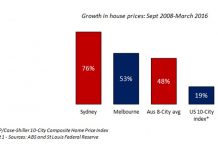Markets seem to be going up and down at the moment with alarming speed so what are the contrarians planning to do?
Most fixed interest asset classes are not exactly flavour of the month at the moment and quite rightly so. Also, we may be at the end of any rallies in developed market equities so where next for the real contrarian?
Investec Asset Management’s Alastair Mundy is a real contrarian and runs the company’s contrarian team.
Over the last twelve months he has reduced his Cautious Managed fund’s exposure to UK equities even though he reckons they are now at a reasonable value. He has also taken a short position in US equities. The present problems in the bond markets has made him take an increased exposure to UK government index-linked bonds.
At the same time he is worried about the latest fashion of trying to reduce volatility via investing in apparent uncorrelated assets.
Mundy maintains, “A number of asset classes have been credited with uncorrelated features, but even during the mini sell-off of recent months, many of these investments have disappointed.”
“This too is no big surprise to us. Uncorrelated assets are typically uncovered in back tests using periods when the asset class was not widely held. Unfortunately, as these assets enter the mainstream and are held by the masses, a number appear to lose their uncorrelated powers. If nothing else these are used as a ready source of cash in sell-offs, so ensuring their own demise.”
One asset class that could well be labelled as uncorrelated is commercial property. My great bone of contention with this though is that it is illiquid but for long term investors it should be considered, especially if a fund is trading on discount.
James Burns, head of multi-manager at Smith & Williamson, is someone who believes that a portfolio should include this asset class and he invests in commercial property in Shanghai.
“I’ve been to China twice in the past five years to see the assets and it’s a really exciting story, which plays on the retail story, including shopping malls,” says Burns.
“It sits on around a 65% discount to NAV. Will I hold this in two years time? I hope not because that would mean it has gone to a much narrower discount and we’ve made a lot of money.”
Private equity trusts are also on his radar. Burns goes on to say, “A lot of the low-hanging fruit has already been picked, but by buying a highly-diversified private equity portfolio, which is churning off cash, they will make a commitment to return capital to shareholders and I expect that discount to come in further.”
Nick Sketch, senior investment director at Investec Wealth & Investment, believes that although it is wise to be wary of the markets at the moment, it is still possible to find value. Even so, he adds the caveat that, “Genuine contrarians will always produce lumpy and volatile performance over short to medium periods, so potential investors will always need good managers, good judgment and patience.”
It is not the Great Rotation, the Great War, the Great Depression, the Great Gatsby, Great Expectations or From Good to Great, but the Great Deceleration. This was the title of a recent Economist cover article in which it concluded that emerging markets are not at the beginning of a bust, but it is a turning point for the world economy.
“When a champion sprinter falls short of his best speeds, it takes a while to determine whether he is temporarily on poor form or has permanently lost his edge. The same is true with emerging markets: the world economy’s 21st century sprinters. After a decade of surging growth, in which they led a global boom and then helped pull the world economy forwards in the face of the financial crisis, the emerging giants have slowed sharply.” (Economist 27 July, 2013).
China is in the midst of a precarious shift from investment-led growth to a more balanced, consumption-led model. We have said on numerous occasions that this will not be without hiccups, volatility or short term swings in sentiment, as it is not an easy task. However, the Chinese Central Government has the financial strength and a 7-year time mandate to make this work and avoid disaster.
In Black Rock’s recent institutional quarterly report entitled “Emerging Realities” one writer concluded that most developing economies face a correction, not a crisis. There is no doubt that emerging economies have evolved enormously over the past decade with stronger institutions, sounder macroeconomic policies and resilient banking sectors. There is also no doubt that emerging market countries with current account and trade deficits are facing stronger headwinds in the shorter term; i.e. India, Indonesia, Turkey, South Africa, etc., but the vastly weaker currencies will help these countries in the longer term.
Emerging market currencies, bonds and equities are much cheaper relative to their developed market counterparts, particularly the US, and are attractive from that trading perspective. However, one should never lose sight of the fact that “valuation is what matters for investing in emerging markets, not superior growth stories.”
It would seem that to be a true contrarian you need to be forward thinking and have the patience of Job. However, the rewards could be great.
| The above data and research was compiled from sources believed to be reliable. However, neither MBMG International Ltd nor its officers can accept any liability for any errors or omissions in the above article nor bear any responsibility for any losses achieved as a result of any actions taken or not taken as a consequence of reading the above article. For more information please contact Graham Macdonald on [email protected] |




